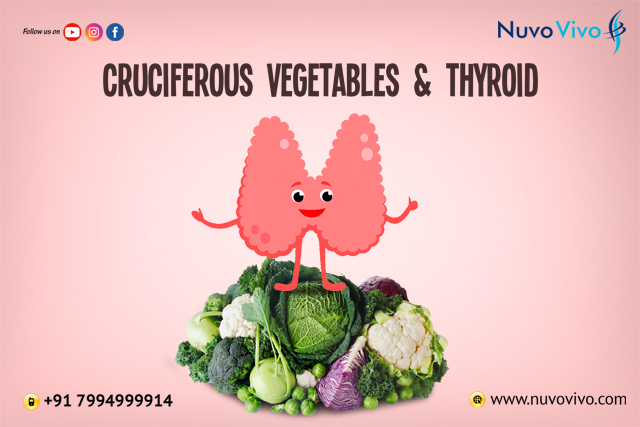Those with hypothyroidism are usually asked to stay away from certain kinds of vegetables such as – cabbage, cauliflower, spinach, kale etc! Should you really stay away from them?
The above-mentioned vegetables are also called cruciferous vegetables or goitrogenic vegetables because it interferes with the thyroid functioning. Thyroid gland secretes two hormones T3 & T4 that impact many functions in the body. To produce these hormones, one of the important ingredients is iodine. The above-mentioned goitrogenic vegetables have certain sulfur-containing compounds (glucosinolates) that inhibit the body’s ability to absorb iodine.
There are broadly 3 types of goitrogens that meddle with thyroid hormone production or conversion – Goitrins, Thiocyanates, and Flavonoids. Goitrins & Thiocyanates are released when the green leafy vegetables are sliced or chewed in raw form. Flavonoids, on the other hand, converts into goitrogenic substances in the presence of certain bacteria in our stomach.
Should you stop eating cruciferous?
You need not stop them completely because of hypothyroidism. One has to eat quite a large amount of such vegetables for it to start impacting the thyroid function. Besides, the goitrogenic property is destroyed to a large extent while cooking. These green leafy vegetables are also excellent sources of several vitamins, minerals, and antioxidants that are important for the human body. Flavonoid itself is a type of anti-oxidant that nullifies free-radicals in our body and has anti-inflammatory properties and also improves immunity. Including food rich in iodine and selenium can help reduce the effects of goitrogens. Selenium, a micro-nutrient found in cereals helps in improving the thyroid hormone metabolism and hence including them in the diet is a good idea
A person who has his/her thyroid removed (thyroidectomy) due to nodules, goiter or even cancer and is on thyroxine tablets need not worry about cruciferous vegetables at all, as they do not interfere with the hormones, instead it interferes with the gland itself. Thyroxine/Thyronorm tablets are nothing but the synthetic form of thyroid hormones (levothyroxine)

